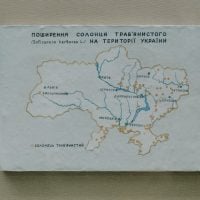Deadline: 30-Apr-2024
The Cambridge Conservation Initiative has announced the expressions of interest for Seascape Restoration Grants.
The Endangered Landscapes & Seascapes Programme (ELSP) is working to demonstrate and deliver a vision for Europe’s landscapes and seascapes where:
- Populations of wild animals and plants flourish;
- There is space for the natural functioning of ecological processes;
- The cultural, social and economic values of nature to people are supported and respected;
- Nature and people are resilient to ecological shocks and stresses such as climate change.
Types of Grants
- Two types of grants are available under this call:
- Large grants: The amount per project will be between US$1.5 (minimum) and US$5 million (maximum), over 5 years. The Oversight and Selection Panel (OSP) will use criteria 1-7 to assess and recommend projects for funding, and 5-7 large grants are expected to be awarded.
- Medium-sized grants: To achieve ambitious landscape- and seascape-scale restoration, organisations (and partnerships) require significant levels of capacity and expertise. Under this call for proposals, the ELSP will offer up to 3 medium-sized grants, each of between US$750,000 (minimum) and US$1.5 million (maximum) over 3 years.
Eligibility Criteria
- Applications are invited from partnerships, where organisations contribute according to their individual and complementary experience, expertise and resources.
- Collaborations may include international and national NGOs, national and local government agencies, research organisations, utilities companies, community organisations, local landowners, social enterprises, the private sector and others.
- Government agencies, for-profit companies and individual private landowners should not be major beneficiaries of ELSP funding.
- Each team should identify a lead partner who will take responsibility for project delivery, coordination, communication and contracting with the ELSP.
- Lead partners for large grants must:
- Be not-for-profit organisations, for example, national, regional and international NGOs and/or social enterprises.
- Have previously managed grants of no less than 60% the amount being requested from the ELSP.
- Be well-established and currently or very recently active in the project seascape.
- Have prior experience of the type and size of project proposed.
- Lead partners for medium-sized grants must:
- Be nationally registered not-for-profit organisations, for example, NGOs and/or social enterprises.
- Have had an average annual income over the last two years of between US$125,000 and US$500,000.
- Be currently or very recently active in the project seascape.
Criteria
- Applications are invited for seascape restoration projects that:
- Restore nature and ecosystem processes at seascape scale to address global, regional or national biodiversity conservation priorities (for species and habitats).
- Establish large-scale systems of continuous or ecologically connected habitat where natural processes are given increased freedom to generate natural patterns and distributions of species (reducing the need for conservation management in the longterm) and which enhance ecosystem and species resilience to the impacts of climate change.
- Demonstrate a good understanding of the mechanism through which they will help overcome one or more barriers to ecosystem recovery (be they ecological, social, economic or political), enabling restoration processes to become self-sustaining.
- Are developed and delivered through a process that involves engagement or partnership with natural resource users, which can show they have support from key actors (state, private, NGOs) within the project area, and which can demonstrate positive community impact.
- Are from project teams that are committed to collaboration, have a strong and stable partnership, are already active in the project area, have members that have skills and experience required for landscape and seascape restoration, and have a commitment, capacity and strategy for long-term stewardship of the seascape.
For more information, visit Cambridge Conservation Initiative.









































